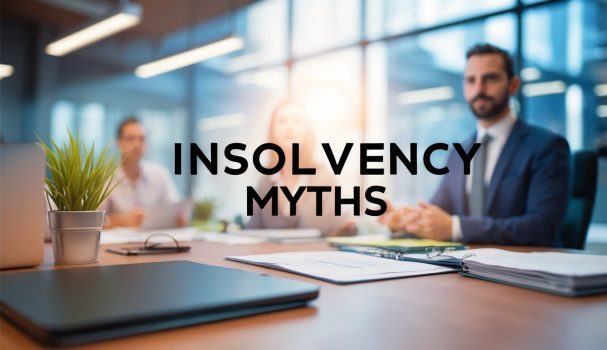A debenture can change everything for a company in debt. When a lender holds a debenture, they have a secured interest over your assets. That gives them more power than other creditors and can directly affect what happens if your business falls into financial difficulty.
Understanding debentures is vital if you want to keep control of your options. Many directors only discover the impact of a debenture when their lender starts to apply pressure or appoints an administrator. By then, choices are limited.
We draw on our experience supporting businesses under financial strain to explain how debentures work, why they matter, and what steps you can take to protect your company. The sooner you act, the more chance you have of achieving a better outcome.

What Is a Debenture?
A debenture is a formal debt agreement. In the UK, it creates a secured interest over the borrower’s assets. The lender, known as a secured creditor, can enforce that interest if debts go unpaid.
Essentially, a debenture gives the lender rights over company assets. It is typically registered at Companies House. This shows that the creditor has legal priority over unsecured creditors.
There are two main types of security involved: fixed charges and floating charges. These are explained in our Insolvency Glossary to help you understand the legal language.
In many UK insolvency cases, secured creditors holding debentures play a central role in deciding what happens next. Their rights often determine whether a business can be rescued or whether assets must be sold to repay the debt.
A floating charge might sound less restrictive. It attaches to assets like stock or cash. But when a company faces default or insolvency, it can crystallise, converting it into a fixed charge. That change gives the lender stronger enforcement rights and affects how assets are treated in rescue proposals or distributions.
At Anderson Brookes, we regularly review debenture documentation at the start of a case. That allows us to advise directors on whether the charge limits options like a Company Voluntary Arrangement (CVA) or administration. If a lender holds a debenture, it could affect both the timeline and control of the process.
Common Questions Addressed
- Is a debenture the same as a loan? Not exactly. A loan is a sum of money. A debenture refers to the agreement that secures that loan against assets.
- Can a debenture be removed once registered? Only with the lender’s agreement or after full debt repayment.
- Do all business loans involve debentures? Many SME lenders use secured loans. But unsecured credit still exists. We can help check and explain the terms of any charge.
Closing a Limited Company with Debts?
Fast and Stress-Free Solutions.
Start closing your limited company today. Placed into liquidation within 8 days. We fully understand that timing is critical.
Worried about your Bounce Back Loan?
Need to close your limited company? Speak to an expert who’s helped thousands do the same – even with company debts or creditor pressure.
Stop Creditor Pressure
Getting constant calls from creditors? Closing your company through liquidation can give you the relief to move forward.
Directors: Avoid Risks When Winding Up Your Company
We guide you, simply, honestly. Let us handle everything.
Why Debentures Matter When Your Business Is in Debt
When a business is under financial pressure, every decision can feel urgent. If a lender has a debenture registered over your company, their position as a secured creditor becomes critical. Debenture holders are first in line to be repaid from company assets. That means they can significantly influence what happens next.
In many cases, a debenture can limit the options available for business rescue. For example, a lender with a floating charge may be able to appoint an administrator, taking control of the process before you do. This is why it’s vital to understand the lender’s rights early on.
A debenture also affects how assets are treated in different insolvency procedures:
- Company Voluntary Arrangements (CVA): Secured creditors, such as debenture holders, may need to be consulted to ensure the proposal works in practice. We regularly guide directors through this process, helping them prepare realistic proposals that have the best chance of success.
- Administration: Debenture holders with floating charges can appoint their own administrator. This often shifts control away from directors. Our team can help directors take early action to avoid this outcome.
- Liquidation: If rescue is not possible, secured creditors recover funds from the assets covered by their charge before unsecured creditors receive anything. To learn more, read our article covering what happens to the director of a company in liquidation.
Ignoring a debenture will not make it go away. Lenders with these rights can move quickly, especially when a business is already in default. Early professional advice is the best way to keep options open and avoid losing control of the process.
Fixed and Floating Charges Explained
Debentures are closely linked to two key types of security: fixed charges and floating charges. Understanding the difference is essential because it directly affects how creditors and directors can act when a company is in financial distress.
Fixed Charges
A fixed charge is attached to a specific asset, such as property, vehicles, or key pieces of equipment. These assets cannot be sold or used without the lender’s permission.
- Example: A lender with a fixed charge over your warehouse can stop you from selling or refinancing it without their consent.
- Impact during insolvency: In liquidation or administration, the lender is paid first from the sale of that asset.
Because of this, fixed charges give lenders strong control over a company’s most valuable assets. If a company with fixed-charge debt starts to struggle, early advice is crucial. We often review fixed-charge security when advising on administration to identify whether a rescue is realistic.
Floating Charges
Floating charges cover a broader range of assets that change over time, such as stock, raw materials, or cash in the bank. These assets can still be traded or used in the ordinary course of business until the charge crystallises.
- Crystallisation: When a company defaults or becomes insolvent, a floating charge converts into a fixed charge. This gives the lender greater control over the assets it covers.
- Creditor priority: Floating charge holders rank ahead of unsecured creditors but behind certain preferential creditors, such as employees owed wages.
Many floating charges also give lenders the right to appoint an administrator. We regularly help directors facing this risk by exploring proactive steps such as a CVA or informal negotiations before enforcement begins.
Sectors We Support
We support company directors in every sector, from construction firms and logistics companies to pubs, cafés, restaurants, hotels, retailers and manufacturers. Our advice is always clear, confidential and shaped by real experience in your industry. Whether you’re dealing with unpaid tax, supplier pressure or falling income, our team understands the challenges and will guide you through the best next steps.
How Debentures Influence Insolvency Procedures
When a company faces financial distress, the existence of a debenture can shape the entire process.
Company Voluntary Arrangement (CVA)
A CVA allows a business to agree on a repayment plan with its creditors while continuing to trade. If a debenture holder has a floating charge, their cooperation is often essential for the plan to work in practice.
Administration
Debenture holders with qualifying floating charges (QFCs) can appoint their own administrator. Acting first can be vital: we help directors consider whether filing for administration before a debenture holder intervenes is the best route.
Liquidation
If rescue is not possible, liquidation may be the only option. Debenture holders are paid first from the assets covered by their security.
Receivership
While rare today, administrative receivership can still be used if the debenture was created before September 2003. We can advise directors facing this situation on their options.

Practical Steps for Directors
- Check Companies House: Review any debenture registered against your company at Companies House.
- Act Early: Explore solutions like CVA or administration before lenders take enforcement action.
- Negotiate with Secured Creditors: We help directors reach practical agreements with lenders to avoid sudden enforcement.
- Understand Personal Guarantees: We review loan agreements to identify personal exposure.
- Build a Rescue Plan: We prepare evidence-based plans to secure lender cooperation and protect your business.
Common Misconceptions About Debentures
- “If there’s a debenture, there’s nothing I can do.” False. With early advice, rescue options often remain available.
- “All debentures are the same.” False. Fixed and floating charges create very different outcomes.
- “Debentures only matter for big companies.” False. Many SME loans involve debentures.
- “Debentures automatically mean liquidation.” False. Lenders often support rescue plans if it improves recovery.

How Anderson Brookes Can Help
If your company has a debenture registered against it, you are not alone. We can:
- Review debenture terms and their impact.
- Negotiate with lenders to avoid enforcement.
- Deliver business debt solutions such as CVA, administration, or liquidation.
Contact us today for a free, confidential consultation. Early action makes all the difference.
Frequently Asked Questions About Debentures
- What is a debenture in simple terms?
A debenture is a legal agreement that gives a lender security over your company’s assets. - How do debentures affect insolvency?
They give secured creditors priority and may allow them to appoint an administrator. As licensed insolvency practitioners, the team at Anderson Brookes can help. - Can a debenture holder force liquidation?
No, but they can appoint an administrator, which may lead to liquidation. - Can I remove a debenture?
Only once the debt is repaid and the lender releases it at Companies House. - Do all loans involve debentures?
No. Many do, but unsecured loans also exist. - What should I do if I have a debenture?
Seek advice immediately. We help directors negotiate with lenders and explore rescue options.
